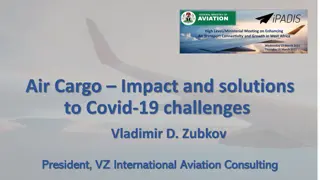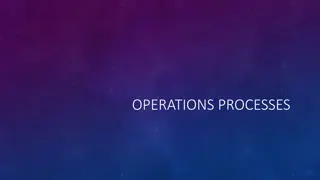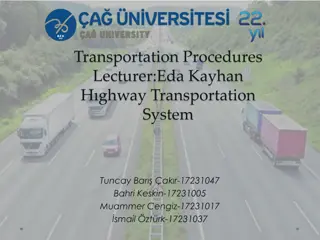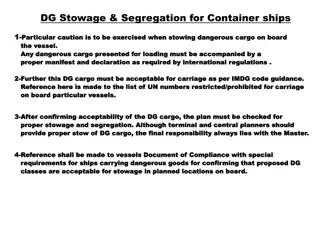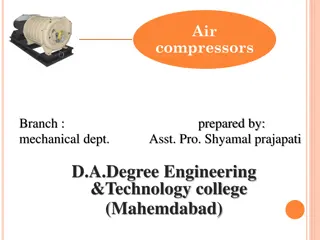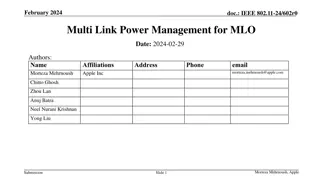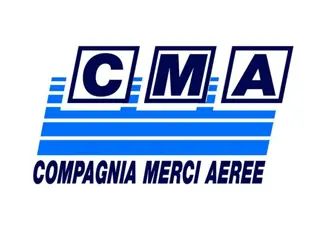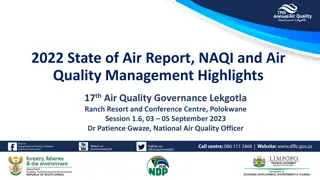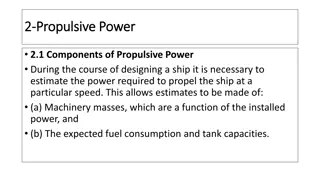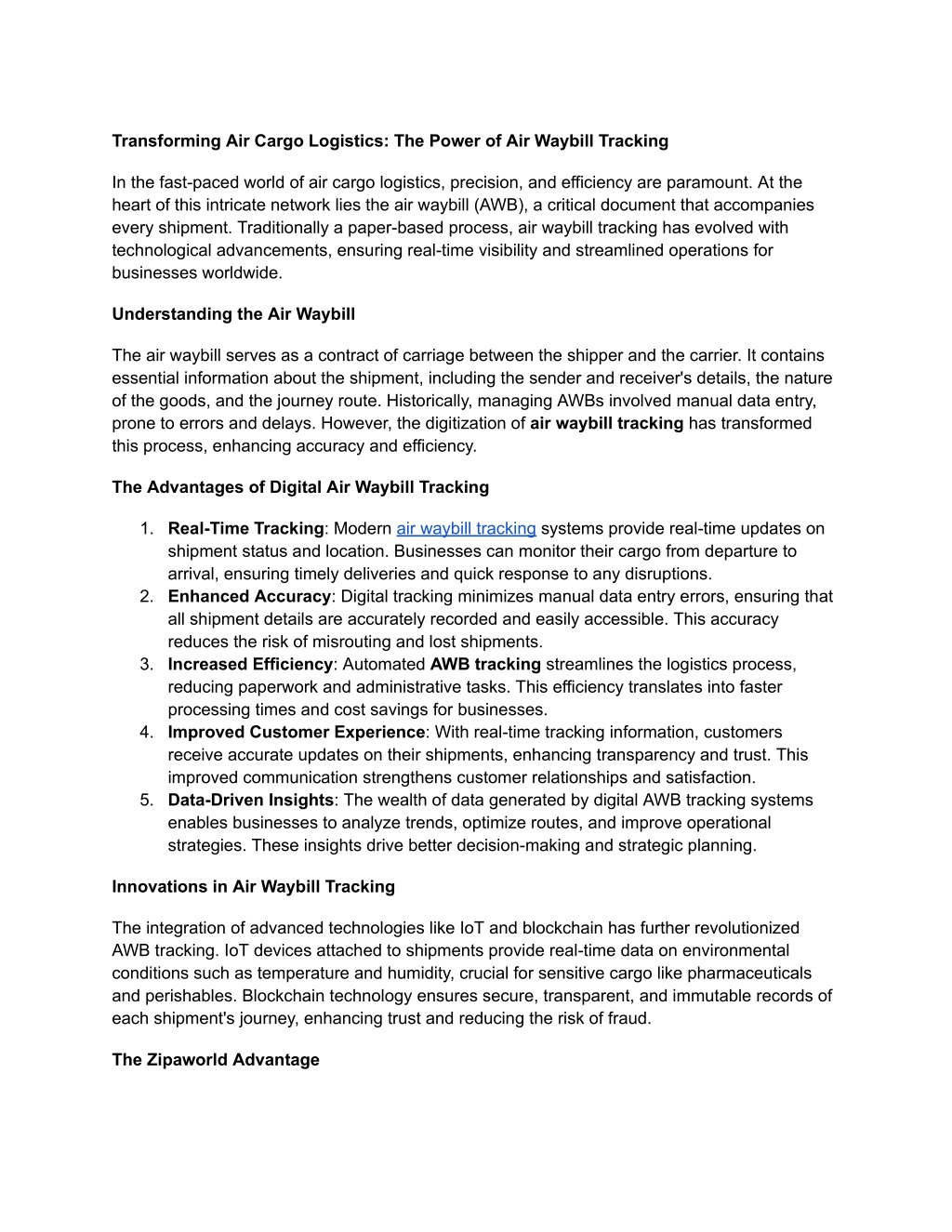
Transforming Air Cargo Logistics_ The Power of Air Waybill Tracking
In the fast-paced world of air cargo logistics, precision, and efficiency are paramount. At the heart of this intricate network lies the air waybill (AWB), a critical document that accompanies every shipment. Traditionally a paper-based process, air
Download Presentation

Please find below an Image/Link to download the presentation.
The content on the website is provided AS IS for your information and personal use only. It may not be sold, licensed, or shared on other websites without obtaining consent from the author. Download presentation by click this link. If you encounter any issues during the download, it is possible that the publisher has removed the file from their server.
E N D
Presentation Transcript
Transforming Air Cargo Logistics: The Power of Air Waybill Tracking In the fast-paced world of air cargo logistics, precision, and efficiency are paramount. At the heart of this intricate network lies the air waybill (AWB), a critical document that accompanies every shipment. Traditionally a paper-based process, air waybill tracking has evolved with technological advancements, ensuring real-time visibility and streamlined operations for businesses worldwide. Understanding the Air Waybill The air waybill serves as a contract of carriage between the shipper and the carrier. It contains essential information about the shipment, including the sender and receiver's details, the nature of the goods, and the journey route. Historically, managing AWBs involved manual data entry, prone to errors and delays. However, the digitization of air waybill tracking has transformed this process, enhancing accuracy and efficiency. The Advantages of Digital Air Waybill Tracking 1. Real-Time Tracking: Modern air waybill tracking systems provide real-time updates on shipment status and location. Businesses can monitor their cargo from departure to arrival, ensuring timely deliveries and quick response to any disruptions. 2. Enhanced Accuracy: Digital tracking minimizes manual data entry errors, ensuring that all shipment details are accurately recorded and easily accessible. This accuracy reduces the risk of misrouting and lost shipments. 3. Increased Efficiency: Automated AWB tracking streamlines the logistics process, reducing paperwork and administrative tasks. This efficiency translates into faster processing times and cost savings for businesses. 4. Improved Customer Experience: With real-time tracking information, customers receive accurate updates on their shipments, enhancing transparency and trust. This improved communication strengthens customer relationships and satisfaction. 5. Data-Driven Insights: The wealth of data generated by digital AWB tracking systems enables businesses to analyze trends, optimize routes, and improve operational strategies. These insights drive better decision-making and strategic planning. Innovations in Air Waybill Tracking The integration of advanced technologies like IoT and blockchain has further revolutionized AWB tracking. IoT devices attached to shipments provide real-time data on environmental conditions such as temperature and humidity, crucial for sensitive cargo like pharmaceuticals and perishables. Blockchain technology ensures secure, transparent, and immutable records of each shipment's journey, enhancing trust and reducing the risk of fraud. The Zipaworld Advantage
Zipaworld harnesses the power of these advanced technologies to offer unparalleled air waybill tracking solutions. Our user-friendly platform provides real-time updates and comprehensive visibility, ensuring that our clients have complete control over their shipments. With a focus on innovation, accuracy, and customer satisfaction, Zipaworld is committed to redefining air cargo logistics and setting new industry standards. Conclusion The transformation of air waybill tracking from a manual, paper-based process to a digital, real-time system marks a significant leap in air cargo logistics. As global trade continues to grow, the ability to track and manage air waybills accurately and efficiently remains essential for businesses aiming to stay competitive. Embracing these technological advancements not only enhances operational efficiency but also drives customer satisfaction and trust, paving the way for a more connected and efficient global supply chain.


